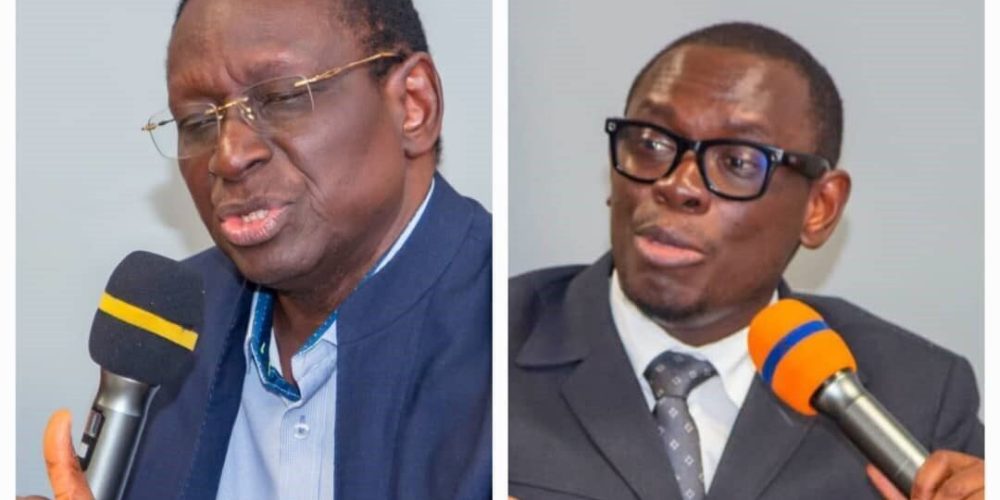The weekly Ministry of Information and Civic Education press briefing, held at the Ministry of Energy conference hall on Siaka Stevens Street, on November 5 2024, highlighted key developments in public service reform and more. The conference featured insights from the Chairman of the Public Service Commission (PSC), Mr. Kalilu O. Bah, and the Director of the Public Service Reform Unit (PSRU), Mr. Sulaiman Phoray-Musa.
Chairman Bah emphasized the critical need for a robust public sector, framing it as the backbone of Sierra Leone’s national development. He noted that wage disparities have long undermined the efficiency of public service delivery, adding that to tackle these challenges, a newly established Wages and Compensation Commission (WCC) will be tasked with standardizing salaries across the public sector, ensuring fairness and equity.
Announcing the drafting of the first-ever Public Service Act, Chairman Bah explained that while the PSC has been vital in overseeing human resource management and recruitment (specifically for roles from grade 7 and above), there has historically been no formal Act guiding its operations. The new legislation aims to modernize the commission’s mandate and operations.
Chairman Bah offered a clear distinction between the civil service and the broader public service, describing the Civil Service as a specialized group of professionals responsible for directly implementing government programs and policies, and the Public Service as an inclusive term that extends beyond the civil service, encompassing various parastatals and other public entities.
The PSC, he explained, serves as the regulator of human resource management across these bodies, responsible for recruiting, supervising, and, when necessary, terminating public service employees.
Director Sulaiman Phoray-Musa provided a historical overview of reform efforts across sectors such as the Teaching Service Commission (TSC), Pay Performance Project (PPP), Wages and Compensation Commission (WCC), and the Financial Management Act (FMA). While these initiatives marked progress, Phoray-Musa highlighted their fragmented nature, which limited their overall impact.
To address these shortcomings, President Bio, in 2023, established the Ministry of Public Administration and Political Affairs. This ministry now coordinates reform efforts across sectors to ensure alignment and efficiency. The culmination of these efforts is a comprehensive Master Plan, collaboratively developed by the PSRU and PSC. This strategic document outlines a unified vision for revamping the public service, incorporating stakeholder validation to reinforce its credibility.
Phoray-Musa reiterated that the transformation of the Civil Service College into a Public Service Academy, aimed at enhancing professional development and training for public servants is a significant reform initiative that supports the broader goal of standardizing recruitment and employment processes, bolstered by clear policies and procedures.
“The Master Plan for service delivery is a collaborative effort, signifying a unified approach to reforming the public service architecture.” He concluded
The joint initiative by the PSRU and PSC marks a significant stride towards overhauling the public service in Sierra Leone. Through legislative updates, strategic coordination, and institutional strengthening, the public service landscape is set to become more efficient, equitable, and aligned with national development goals.
Credit – Ministry of Information and Civic Education





